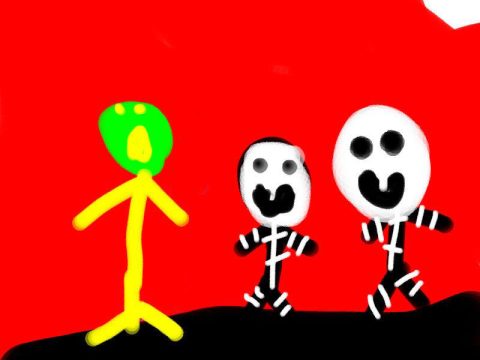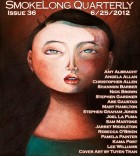When the new doctor joined the staff, he told us he was afraid of blood. He said there had been a childhood accident. His brother had dived into an empty pool. His brother always wore dark sunglasses due to his eyes being scalded by hot water when he was a baby, and so he often saw things that weren’t there—transparent moths, skinny children, and, yes, water. The new doctor had found his brother at the bottom of the pool as summer insects buzzed in the heavy air. The blood—the new doctor told us—the blood from his little brother made the shape of a full windsock as it flowed toward the pool’s drain. The new doctor wanted to climb down the ladder into the deep end where his brother lay dying, but the ladder stopped high above the bottom. The ladder was useless without the water and the brother was useless without the blood. He could have walked down the stairs at the shallow end, but he was thinking about what to do. That day was why he was a doctor now.
But no blood, he told us. Too much pain. The spill like a windsock pulled taut against gravity, like some arrow pointing the way—down the drain, or off to med school. Life spilling out, life plugged and stitched. It was all the same and it was all terribly different.
The new doctor loved his patients—the patients who didn’t bleed. They were gushing with infection, full of pus. He told them about his brother and they seemed to understand him. They wanted to get better for him. They didn’t want him to watch them die as he stood over their beds, the rails as cold as ladders. So they pulled themselves up from the bottom by the means of the invisible, by those things that could not be seen. They piled into their cars as they were discharged and we watched them drive off in the early morning light. Their arms stuck from the windows like the tendrils of a spore, catching the wind.



 The SmokeLong Grand Micro Contest (The Mikey) is now an annual competition celebrating and compensating the best micro fiction and nonfiction online.
The SmokeLong Grand Micro Contest (The Mikey) is now an annual competition celebrating and compensating the best micro fiction and nonfiction online.